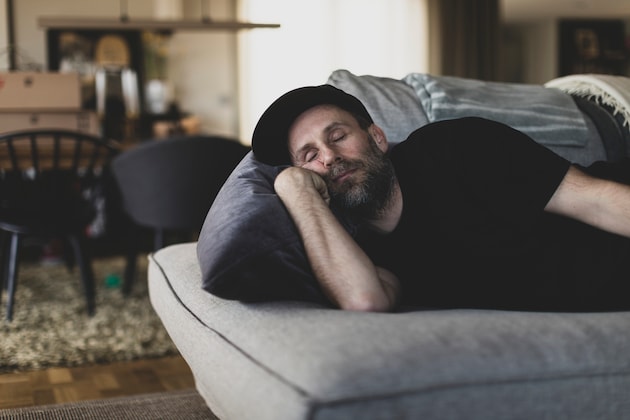Some people look forward to going to bed in the evening – they celebrate going to sleep, love their cozy bed and maybe read a few pages before curling up under their blanket with pleasure.
Other people regularly doze off on the couch in the evening – and then wake up. As a result, many regularly doze off in front of the television.
However, researchers warn that this can be harmful to health.
A joint study by Harvard University and the University of Surrey shows that those who regularly expose themselves to bright living room light and television light in the evening inhibit their melatonin production.
The hormone melatonin is released by the pineal gland when it gets dark and regulates sleep and wake cycles.
Although many people spend their evenings in bright light, there has so far been little in-depth research into its effects.
The researchers took this as an opportunity to compare the quality of sleep with different evening and bedtime habits.
The result: Anyone who sits in front of the TV, computer or tablet for a long time in the evening and may temporarily fall asleep will have their melatonin release significantly slowed down.
One more consequence – who hasn’t heard this? If you spend hours in the artificial light of a screen, the hypothalamus slows down the release of melatonin.
Even when you’re physically exhausted, your brain isn’t ready for sleep.
At the same time, televisions and computers ensure that you don’t get tired and are therefore exposed to harmful light for longer. The result is problems falling asleep and the quality of sleep is impaired – frequent waking up is the result.
“We shouldn’t expose ourselves to artificial light at all in the evening. Period!” Clear words from Dr. Dianne Augelli from the American Academy of Sleep Medicine told SELF magazine.
Instead of struggling with tiredness in front of the television every evening, bedtime rituals such as reading or taking a warm bath can help you fall asleep faster – and wake up more refreshed the next morning.
The original of this article “Poor sleep: You should avoid this popular evening habit” comes from FitForFun.















